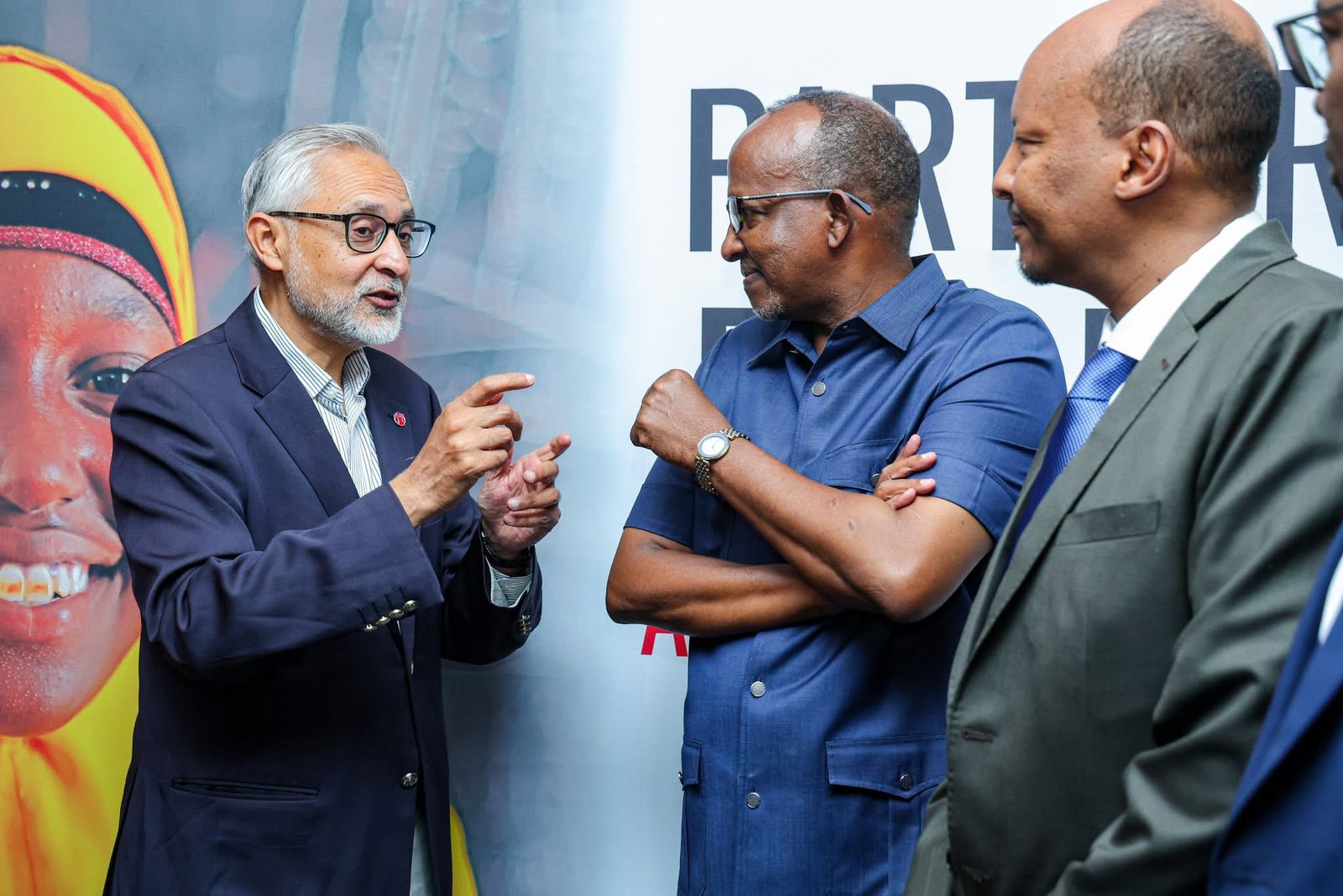 Health Cabinet Secretary Aden Duale (middle) alongside Dahabshiil Group CEO Abdirashid Duale (right) and Moazzam Malik, the CEO of Save the Children UK during the launch of Strategic Partnership aimed at improving the wellbeing of children in the region at a Nairobi hotel./HANDOUT
Health Cabinet Secretary Aden Duale (middle) alongside Dahabshiil Group CEO Abdirashid Duale (right) and Moazzam Malik, the CEO of Save the Children UK during the launch of Strategic Partnership aimed at improving the wellbeing of children in the region at a Nairobi hotel./HANDOUT
Dahabshiil Group and Save the Children International have launched a new strategic partnership aimed at improving the wellbeing of children across the region.
The announcement was made at an event in Nairobi, attended by Kenya’s Cabinet Secretary for Health, Hon. Aden Duale, who praised both organisations for their long-standing support to communities in Kenya, Somalia and around the world.
“This partnership supports our commitment to the Bottom-Up Economic Transformation Agenda (BETA), particularly in expanding Universal Health Coverage for vulnerable populations,” he said.
“It also reflects the spirit of Sustainable Development Goals (SDG 17)—strengthening global cooperation.”
The event was co-hosted by Dahabshiil CEO Abdirashid Duale and Save the Children Somalia Country Director Mohamud M. Hassan.
Also in attendance were Wajir South MP Mohamed Adow, Save the Children Kenya Country Director Pornpun Jib Rabiltossaporn, and representatives from the donor and development community.
“This marks a new chapter,” said Abdirashid Duale.
“While Dahabshiil has long provided banking and operational support to Save the Children, this formal partnership brings together our financial infrastructure and network with their humanitarian expertise, enabling us to better serve families across the region.”
Moazzam Malik, CEO of Save the Children UK, said the scale of needs in the region required partnerships that draw on local knowledge and business acumen.
“Bringing together humanitarian and private sector actors is critical if we are to deliver lasting change.”
MP Mohamed Adow described the collaboration as “an investment in the future”, and said the health and wellbeing of children must remain central to long-term development strategies.
The partnership is seen as a bold step in linking private sector capabilities with humanitarian goals—offering a collaborative model to improve the wellbeing of children across the region.







